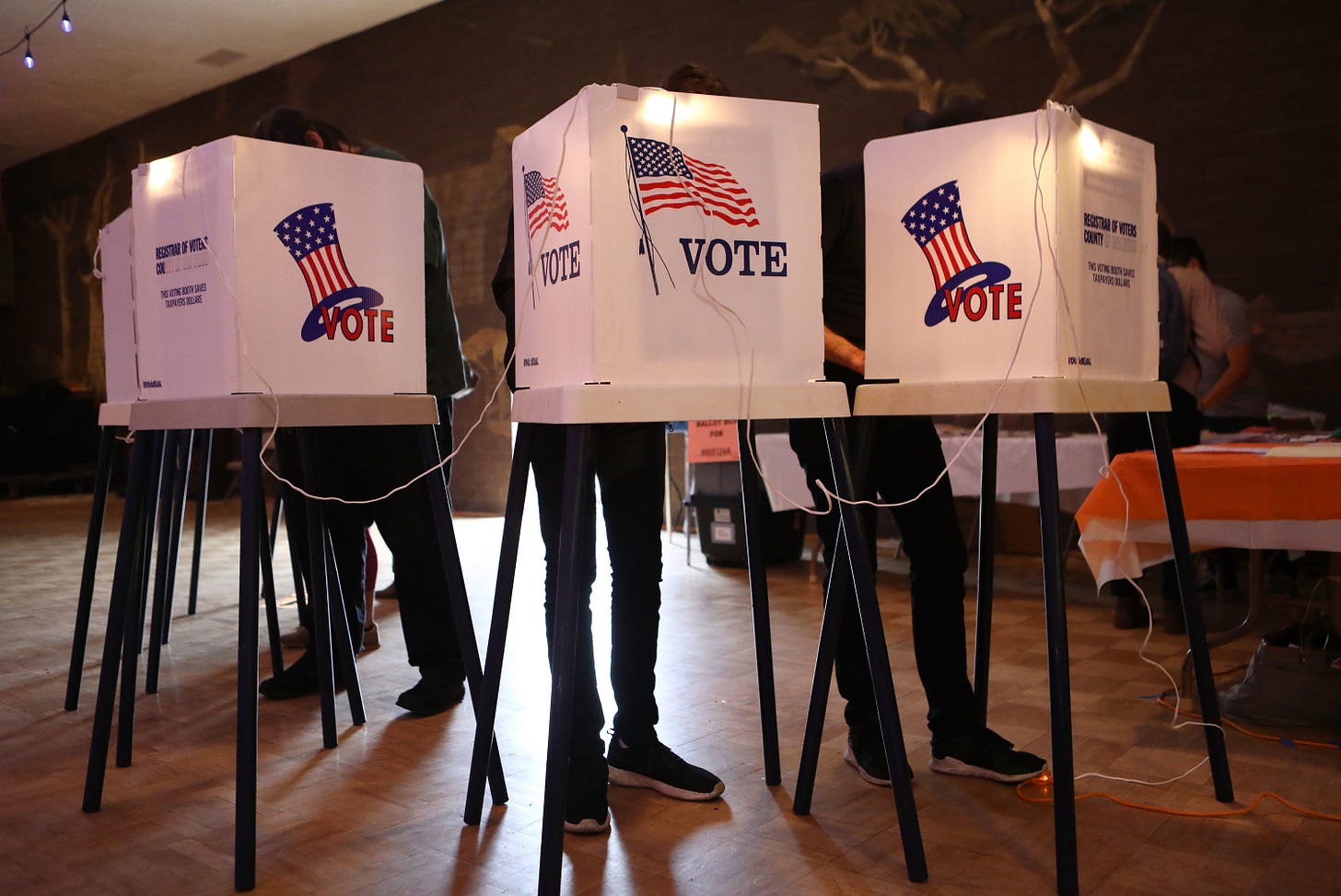The Impeachment Equation
In the Washington Post last week talk radio host and constitutional scholar Hugh Hewitt argued that “If Republicans don’t stand by Trump, they risk losing their base forever.”
I’m not going to link to the piece, because, as I argued recently, there’s no reason to engage with goalpost shifters. And any lawyer who claims that the constitutional mechanism of impeachment “is a coup attempt” is clearly in that category.
But I do want to talk about something that Hewitt insists is true:
The Republican Party risks exile for longer than it has endured in the modern era if, in the absence of incontrovertible evidence of actual “high crimes and misdemeanors,” it deserts President Trump during the campaign to remove him from office.
This is an interesting contention.
First, let’s stipulate that it might be true. There’s no evidence to suggest that it is true. Hewitt seems to think that callers to his conservative radio show are a more indicative sample of reality than people on Twitter. I doubt that very much—if anything, the two samples are probably mirror images of one another.
So Hewitt isn’t analyzing any data so much as wishcasting. But sometimes wishes come true. Maybe this is one of those times.
And yet I can’t quite shake the sense that at some point, in the distant past, I heard a lot of talk about how elections were binary choices, and that Democrats were despicable radicals, and the Supreme Court was critical—and that all Republican voters, everywhere, had a positive moral duty to vote for any candidate the GOP put forth in a general election. No matter what. Because the alternative was the utter and complete destruction of the Republic.
Is that . . . no longer true?
If Tom Cotton is the Republican nominee in 2024 running against Elizabeth Warren—who is then promising to finish her nationalization of the health insurance sector and possibly appoint two justices to the Supreme Court—will Republican voters stay home because they’re mad that Donald Trump was impeached and removed from office in 2019?
That seems to be a pretty dubious contention, because at that point most Republicans will be shouting from their studios that 2024 represents the Most Important Election of Our LifetimesTM.
But as I said, maybe Hewitt is right. Maybe Republicans would be so terribly upset at a handful of Republican senators that they would choose socialized medicine and the destruction of their private health insurance plans in order to teach Mitch McConnell and Susan Collins and Lisa Murkowski a lesson.
On the other hand, Hewitt's analyses tend to track pretty closely with his political preferences. For instance, in March of 2006 Hewitt published a book called Painting the Map Red: The Fight to Create a Permanent Republican Majority. This was eight months before Democrats flipped both the House and the Senate. In the very next presidential election the Democratic candidate took 53 percent of the vote, winning more actual votes—by far—than any man to ever run for president in the history of our nation.
All of that said, Hewitt does have the nub of an interesting question:
Is there a point at which turning on Trump become less costly for Republicans than sticking with him?
It is certainly possible that Republicans could pay a price for flipping on Trump if an impeachment trial were to reach the Senate.
But it is also possible that Republicans could pay a price for sticking with Trump if an impeachment were to reach the Senate.
It all depends on what the public thinks. This means balancing the potential for lost votes among GOP die-hards against the potential for lost votes from independents and Republican leaners. Because while there might be a cost for deserting Trump, there might also be a cost for sticking with him.
Balancing that equation—both for 2020 and then discounting for lagging effects in future cycles—is going to be tremendously difficult for the people whose careers depend on winning elections. If I were part of the institutional body of the Republican party, I would have a team of smart polling people and political scientists tucked away in a basement doing a lot of targeted surveys and trying to get their arms around exactly this equation.
For people whose careers depend on staying on the right side of a talk-radio audience, the math will be somewhat easier.




